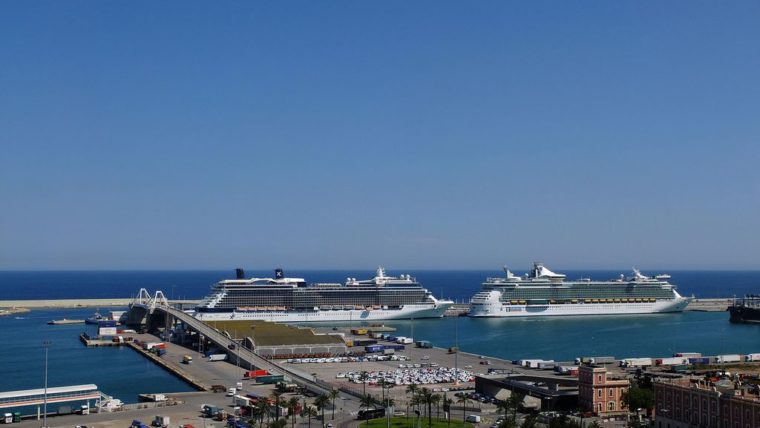First board to regulate cruise ship activity in Barcelona
The first session was held today by the study board for the regulation of cruise ships, a new body made up of the City Council, the Ministry for Transport, Mobility and Urban Agenda, the Government of Catalonia and Port de Barcelona. The purpose of the board is to decide on measures which ensure the well-being of local people, environmental sustainability in the city and the future of the cruise ship sector.
The joint commission for the City Council and the Catalan government agreed on 2 June to create a study board to assess the situation with cruise ships in the city from an inter-institutional perspective, and to agree on what action is needed to regulate their activity.
The first session by the new body looked at the conclusions in the report on externalities, which was presented on 14 July and includes indicators and figures which cause concern over the impact of cruise ships in the city. The document indicates that the city currently receives 15,000 passengers a day on fifty days of the year, a figure which can reach 25,000 people, most of whom are short-stay visitors.
Need to regulate the sector
With no limitations or regulation, Barcelona could reach 3.5 million passengers a year by 2030. To avoid becoming collapsed or overcrowded, particularly during short periods of weeks or months, the regulating board will seek to establish mechanisms to make the cruise ship business model compatible with sustainability and public well-being. Examples include:
- Limiting the arrival of cruise ships to a maximum of three per day.
- Halving the number of cruise ship passengers in high seasons, with a limit of 200,000 passengers a month.
- Cutting the number of days with excess passengers to zero, with a limit of 10,000 visitors a day.
- Reducing by up to 20% the number of cruise ships spending no more than four hours in the city. Ships making short stops currently account for between 40% and 50%.
- Limiting access to electric cruise ships only, as from 2030, the point where the entire port should be working solely on electricity.
The measures which need to be defined and agreed on between administrations will be decided on thanks to two new working groups: one will provide input based on the report on externalities and develop a complete analysis of cruise ship activity, and the other will assess the agreements from 2018 to reorganise the port and put forward new measures.


Tags associated with the news item
Related news
-
 Environment and sustainability
Environment and sustainability
Environment and sustainability
Environment and sustainabilityCruise ship passengers could reach 3.5 million if unregulated
14/07/2022 19:58 h
-
 City Council
City Council
City Council
City CouncilNew collaboration agreements by the Joint Commission with the Catalan government
02/06/2022 15:15 h
-
 Urban planning and infrastructures
Urban planning and infrastructures
Urban planning and infrastructures
Urban planning and infrastructuresThe project to improve the rail connection with the port moves forward
16/11/2021 18:12 h
-
 Environment and sustainability
Environment and sustainability
Environment and sustainability
Environment and sustainabilityArtificial reefs at the Port Olímpic to recover biodiversity along the city coast
09/07/2021 15:26 h




